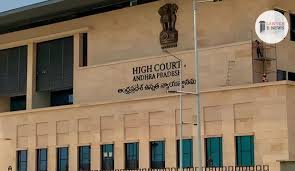-
by Admin
15 February 2026 5:35 AM



In a significant ruling, the High Court of Andhra Pradesh at Amaravati has upheld the decision of the trial court allowing the amendment of property boundaries in a suit for permanent injunction post the commencement of the trial, citing that the amendment corrected a mere typographical error and did not cause any prejudice to the petitioner.
The crux of the matter revolved around the application of Order VI Rule 17 of the Code of Civil Procedure, 1908, which restricts amendments to pleadings after the commencement of the trial unless it is demonstrated that the need for such an amendment could not have been anticipated with due diligence prior to the trial.
The dispute originated from a civil suit filed by the respondent, Dommaraju Surekha, seeking a permanent injunction to prevent the petitioner, Dommaraju Beerendra Varma, from interfering with her possession of certain agricultural land. The respondent initially described the boundaries of the property, but later sought to amend them claiming a typographical error. The petitioner opposed this amendment, arguing that it was an attempt to alter the factual matrix of the case after the trial had already begun.
The court noted that the amendment sought by the respondent was to correct an inadvertent typographical error concerning the northern and southern boundaries of the property. The respondent's counsel argued that this error was not apparent until the trial stage, fulfilling the condition of due diligence as required under the proviso to Order VI Rule 17 C.P.C.
It was argued by the petitioner’s counsel that the amendment would prejudice his client’s defense. However, the court observed that the southern boundary correction was in agreement with the petitioner’s own claims, thus nullifying any potential prejudice to the petitioner.
The court highlighted that both parties agreed on the southern boundary, and the only contention remained on the northern boundary. This partial agreement between the parties supported the case for allowing the amendment.
Decision:The High Court dismissed the civil revision petition, affirming the trial court's ruling that allowed the amendment of the property boundaries in the ongoing lawsuit. The court concluded that the amendment was justified and met the statutory requirements under the C.P.C., and it did not adversely affect the petitioner's rights or the trial's outcome.
Date of Decision: April 16, 2024
Dommaraju Beerendra Varma vs. Dommaraju Surekha
